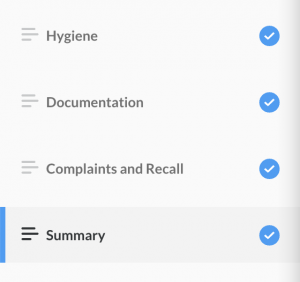Download Course Summary Leaflet
Good Clinical Practice (GCP) Course (E6 R3)
Introducing our newly updated, interactive, and engaging online training course, now aligned with the latest ICH Good Clinical Practice (GCP) E6 Revision 3 guidance which was released on 6th January 2025. This course reflects the most recent changes in the GCP framework, designed to ensure compliance with current global standards for clinical trials.
Our course goes beyond merely rehashing the E6 R3 guidance. We have reimagined it, to include foundational knowledge and provide practical, actionable insights that can be directly applied to everyday situations in clinical research, empowering participants to navigate real-world challenges with confidence and expertise.
Our comprehensive training is suitable for anyone involved in clinical research and will provide participants with official certification in GCP, recognised by sponsors worldwide.
Created by subject matter experts with over 35 years of experience in clinical research, this course incorporates the latest best practices and regulatory updates. It includes improved knowledge checks, video learning using AI technology and more interactive elements to make the learning experience even more engaging and effective.
This course meets the training requirements set forth by Transcelerate Biopharma Inc., and is ideal for investigator site personnel, ensuring you stay at the forefront of clinical research standards.
Stay ahead of the curve with GCP E6 R3 training that prepares you for the evolving landscape of clinical trials.
The Faculty of Pharmaceutical Medicine has approved this online GCP training course for CPD points.
CPD Points Available: 6
Learning Objectives of GCP Training
- To identify the key changes in ICH GCP E6 R3:
Gain a comprehensive understanding of the new principles and updates in the ICH GCP E6 R3 guidelines and how they impact clinical trials. - To apply the core principles of GCP:
Learn to effectively implement the foundational principles of GCP, ensuring participant safety, data integrity, and compliance throughout clinical trials. - To explore the new roles and responsibilities of clinical trial personnel:
Understand the evolving roles and responsibilities for investigators, sponsors, and other key stakeholders, as outlined in the E6 R3 update. - To examine the regulatory framework for clinical trials:
Learn how the ICH GCP E6 R3 integrates with other global regulations and frameworks, including the EU Clinical Trials Regulation, and how it influences clinical trial conduct. - To describe effective risk-based management in clinical trials:
Develop the skills to assess, manage, and mitigate risks in clinical research through the application of updated GCP risk-based approaches. - To consider the impact of data integrity and quality on clinical research:
Explore strategies to maintain high-quality record-keeping practices and ensure data integrity throughout the lifecycle of clinical trials. - To identify improved monitoring and oversight practices:
Learn about the updated monitoring techniques and oversight mechanisms introduced in E6 R3 to enhance trial performance and compliance. - To explain the new guidance on investigator and site management:
Gain insight into the new guidance for investigator and site management practices, including requirements for record-keeping, training, and oversight. - To explore how to effectively use technology to enhance compliance:
Understand how digital tools and technology can be leveraged to improve GCP compliance, streamline workflows, and enhance trial efficiency. - To prepare for the implementation of ICH GCP E6 R3 in your role:
Apply the knowledge gained to adapt and implement the new GCP standards in your specific role within clinical research, ensuring full compliance with the updated guidelines.
These objectives ensure that participants not only understand the theoretical aspects of ICH GCP E6 R3 but also how to practically apply the principles to their work in clinical research.

